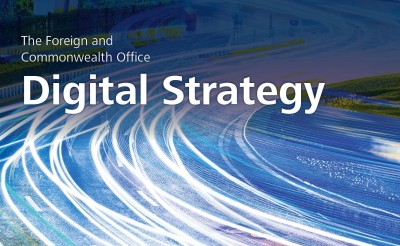Today we’ve published the Foreign Office Digital Strategy.
The process of writing that strategy has been an intense one. We organised workshops with policy and service delivery staff, held teleconferences with Embassies around the world, drew on previous internal work and invited comments through an internal forum and external blog. We also drew on expert support and guidance from the UK’s Government Digital Service.
The strategy therefore sets a clear vision for how we will use digital in the future. First, making use of digital tools in every element of foreign policy work, including to deliver more open policy formulation and increased transparency. Second, moving to provide our services digitally by default, to deliver more effective services and release resource to dedicate to those British nationals most in need. In sum, this is about spreading the use of digital tools – where they can add value – much more comprehensively through our core work, not replacing but enhancing the application of traditional diplomatic skills.
Implementing this strategy in full will require sustained effort, similar to the changes other industries have gone through in recent years. The strategy contains an implementation plan around ensuring continued leadership, building up digital capability, and tackling other obstacles to making full use of digital. The introduction of a Board level champion, the establishment of a digital transformation unit, the production of new guidance and training relevant to policy and service delivery staff, the increased staff access to social media, and the publication of more encouraging social media guidance are just some of the actions it contains to deliver on this ambitious agenda.
Two last thoughts. First, a thank you to all those – both inside and outside the Foreign Office – who helped in working up this strategy, including those like senior diplomat John Duncan and the Consular team who produced previous digital reviews. Many people generously gave time and wisdom and have improved our efforts as a result. Second, while this strategy will need to evolve and change over time, the overriding ambition of using digital tools to improve how we deliver UK foreign policy will remain a constant. We are also determined to remain among the leading foreign ministries in the use of digital to enhance foreign policy.
Do let me know your thoughts about the Digital Strategy, and on where we should focus as we move to implementation.

